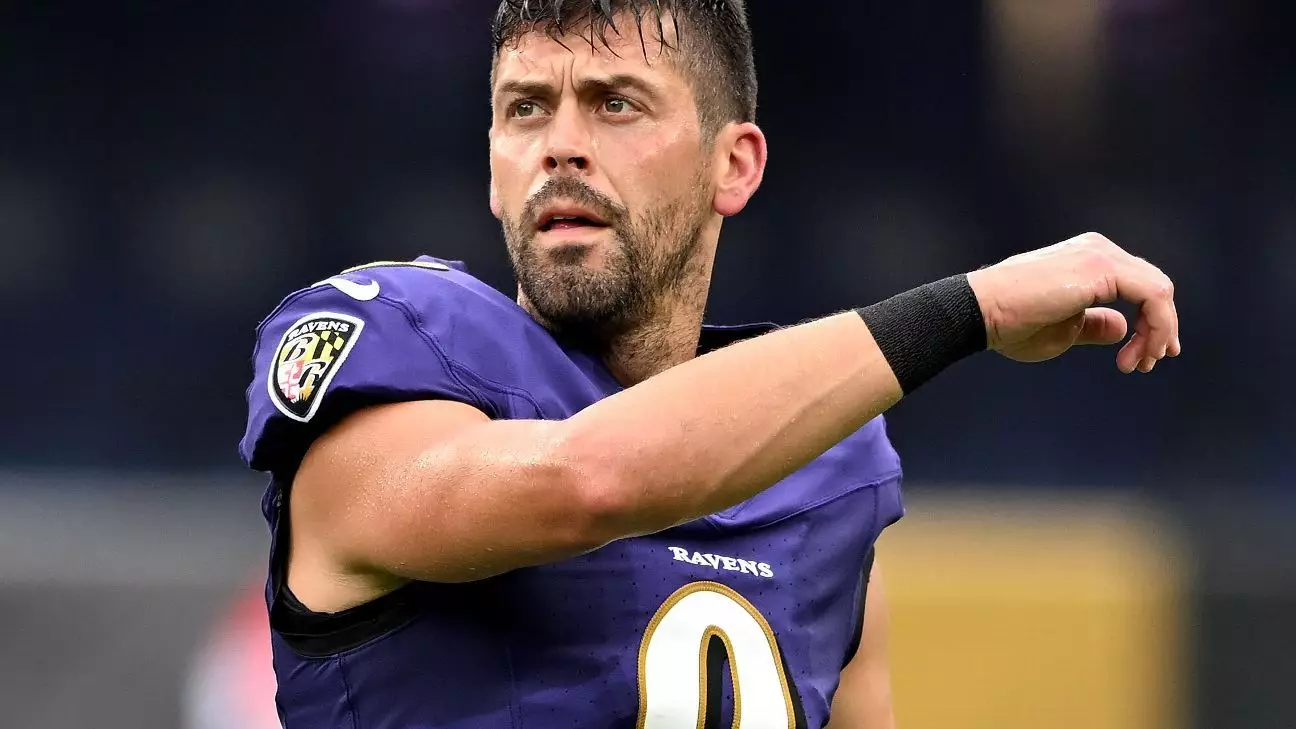The NFL’s decision to suspend former Baltimore Ravens kicker Justin Tucker for the first 10 weeks of the 2025 season marks a moment of reckoning for both the league and its culture. On paper, a suspension suggests accountability, but when weighed against the gravity of the allegations—sexual misconduct by 16 different massage therapists—the punishment feels woefully insufficient. The NFL’s enforcement of its personal conduct policy often comes across as a performative gesture rather than a true commitment to justice. This case painfully underscores the troubling pattern of leniency extended to star athletes, who wield immense influence and power within the league.
Tucker, once celebrated as the most accurate kicker in NFL history and a symbol of consistency, has been stripped of his long-standing tenure with the Ravens. Yet, the narrative that he might return after a mere 10 games sends a disquieting message about how the league values its victims versus its stars. While Tucker denies all allegations, the sheer number of accusers and the breadth of the time frame over which misconduct was reported—2012 to 2016—complicate the simplistic binary of guilt or innocence. The NFL’s response, although necessary, fails to delve deeply into the systemic issues underscored by this saga.
Victims’ Voices: A Reverberating Call for Serious Reform
Amid the shadows of professional sports, the personal stories of the 16 massage therapists emerge as a painful chorus demanding recognition. Their courage to come forward in a notoriously insular and often protective industry deserves profound respect. The brutal reality they face, where their trauma is minimized by a mere 10-week suspension, reveals the gulf between institutional response and personal impact. One therapist’s discontent—that a punishment so fleeting contrasts harshly with the lifelong scars they bear—reveals how little progress the NFL has made in meaningful justice.
The attorneys representing these women didn’t mince words, emphasizing that Tucker could have alleviated some pain by issuing a simple apology—a gesture that was never forthcoming. This refusal to acknowledge any wrongdoing serves only to compound the harm inflicted, perpetuating a culture where victims are doubted and offenders shielded. It’s a stark reminder that symbolic penalties are hollow without a sincere reckoning and that accountability extends beyond the playing field.
The Disconnect Between Talent and Ethics
Justin Tucker’s athletic résumé is undeniable: seven-time Pro Bowler, the last remaining player from the Ravens’ 2012 championship roster, and a record-setting kicker once deemed indispensable. Yet, this suspension is an uncomfortable reminder that professional excellence cannot, and should not, shield one from accountability. Tucker’s recent decline in performance—his worst season yet—parallels the unraveling of his pristine public image, suggesting that talent is fragile, especially when weighed against off-field controversies.
His release from the Ravens also reflects the shifting priorities within NFL franchises—the understanding that character and conduct might matter as much as touchdowns and field goals. Still, the fact that Tucker can serve his ban at home while theoretically preparing to return to professional play raises questions about the depth of the league’s self-policing. The NFL’s responsibility extends beyond penalizing individuals; it must shape a culture that prevents abuse from taking root.
A Missed Opportunity for NFL Leadership
The NFL had a moment to demonstrate unequivocal leadership in addressing sexual misconduct and to prioritize the safety of marginalized professionals like massage therapists, often overlooked in the sports ecosystem. Instead, the league’s response feels incremental, almost an afterthought lodged between press releases and contract negotiations. The season-long suspension—less than half of the 2025 regular season—does not reflect the magnitude of harm alleged.
This case illuminates an uncomfortable truth that many football fans and league executives struggle to confront: the NFL’s institutional inertia favors preserving reputations and revenues over enforcing robust moral standards. While the Ravens deserve credit for severing ties with Tucker, the broader league apparatus appears hesitant to escalate consequences when marquee stars are involved. The power imbalance between players and support workers calls for a more forceful stance—a cultural shift driven by genuine empathy and accountability.
—
Justin Tucker’s suspension is a flashpoint in the ongoing dialogue about abuse, power, and responsibility within professional sports. It challenges the NFL to ask harder questions about its values and its role in safeguarding vulnerable communities beyond the stadium lights. The halfway measures offered here convey a disappointing message: talent still buys leniency, and victims remain on the margins of justice.

